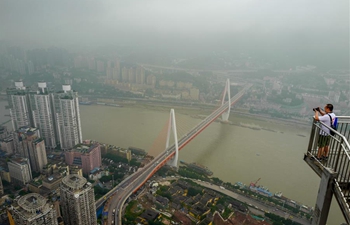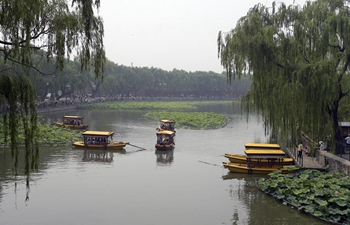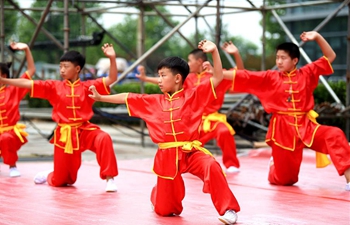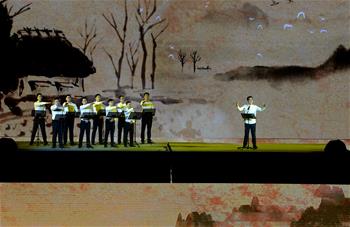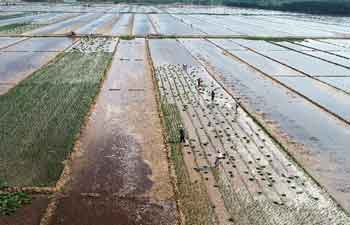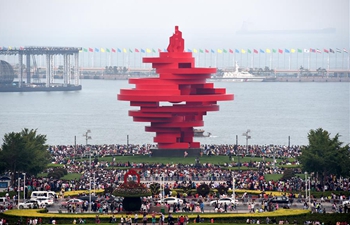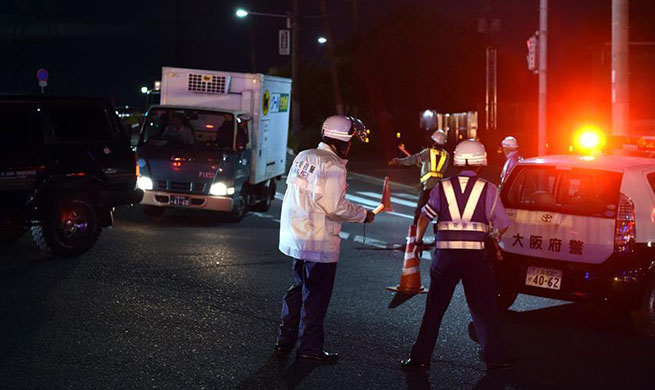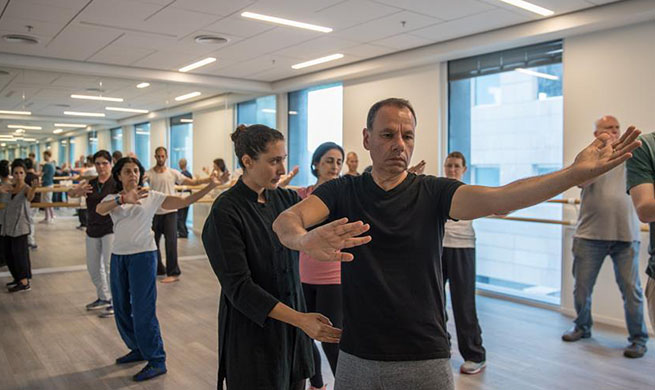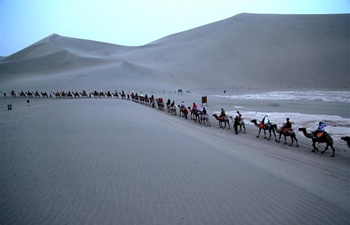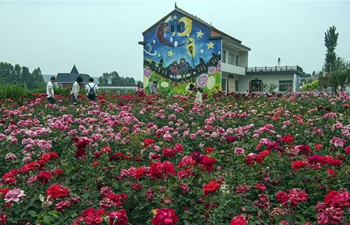By Xinhua reporters Bai Xu, Zhao Bo
CANBERRA, June 19 (Xinhua) -- David McAllister with the Australian Ballet has always been looking forward to trips to China, in spite of the change of his roles. He had been dancing on the stage, while this time, the artistic director will bring his own work there.
The Australian Ballet announced on Monday that the company will tour to Beijing, Nanjing and Shanghai in October 2018.
It will be their ninth visit to China since its establishment in 1962. The tour marks the international debut of Artistic Director David McAllister's production of The Sleeping Beauty for audiences in Beijing and Shanghai with four performances respectively. In Nanjing of east China's Jiangsu Province audiences will be able to enjoy the enduring romance of Maina Gielgud's Giselle.
"Sleeping Beauty is our newest production. It is grand and lavish," said David McAllister in an interview with Xinhua. "What I did was to make it shorter. It was four hours' long and I trimmed it down, and to have it focus on Aurora, the main character, so as to make it strong."
"Because it is big to set up, we will have Giselle in Nanjing," he added. Giselle is among their most popular dances brought overseas.
"The Australian Ballet is just like a bridge, connecting China and Australia in the past decades,"said Yang Zhi, cultural counsellor of the Chinese Embassy in Australia.
Australian Senator Mitch Fifield, deputy leader of the Government in the Senate and Minister for the Arts and Minister for Communications, confirmed the government's support for this important tour, which will contribute funding of 100,000 Australian dollars (about 74,399 U.S. dollars) towards tour costs.
"The tour China once again presents opportunities to showcase the Australian Ballet's position as a great cultural ambassador for Australia, highlighting the world class skill and talent of their artists and productions and many cultural exchanges that have been initiated as a result of the company's long association with China."
CHANGING STAGE
"The ballet could appeal to the broadest audiences. It covers boundary of countries across the world," McAllister said.
The Australian Ballet first visited China in 1980, to Beijing and Shanghai. McAllister first went with the group in 1987, when "people were wearing uniforms when they went to see the opera", and many of the audiences "were diplomatic people."
The 54-year-old said he witnessed "enormous changes" in China during the past three decades.
"In 2001 when I was in Beijing, they announced that the city was to host the Olympics. It was an extraordinary experience to be there, seeing the firework, the party when I looked down from the hotel roof," he said. He also visited the Expo site in Shanghai some years later.
"We could see the modernization," he said. "The theaters are bigger." He was especially impressed by the National Center for Performing Arts, with a dome and quite mammoth.
"The theater in Shanghai is also quite beautiful," he said, noting that Beijing and Shanghai, both with great architectures, are like Melbourne and Sydney, with the former serious and the latter flamboyant.
He also saw changes in clothing, with more luxurious fashion brands becoming increasingly accepted by the Chinese people.
"Now they have more western experience," he said "There are a lot of middle class people who came to the show with their families."
Meanwhile, more Chinese dancing groups went abroad and McAllister saw "a rise of Chinese dancers."
It doesn't mean the lack of good ballet dancers in the past. In fact, McAllister once took part in a competition in the 1980s when he saw "wonder Chinese dancers", "but then they didn't travel a lot."
CHINESE DANCERS
Currently Australian Ballet has three Chinese dancers, all of whom graduated from the Beijing Dance Academy. One of them, Guo Chengwu, has already become a principal dancer who visited China with the group in 2015.
Xu Yipeng is another Chinese dancer in the group.
"I am so happy to be performing on the stage of my motherland," said the 22-year-old dancer who is known to his colleagues as Lucien. "My parents will be watching."
He was born in Xuzhou of east China's Jiangsu province. His father once worked in the Shanghai Dance School.
"I was very thin and in poor health, so my father, who knew a dance teacher, hoped that I could learn dancing as physical exercise," he recalled.
He was 11 that year. Later he was enrolled in the Beijing Dance Academy, and in 2014 he was offered scholarship after a competition in New York.
"I have several countries to choose from, among which I chose Australia, because I heard of Guo Chengwu," Xu said.
The road was bumpy. "I didn't adapt quickly, because my English was bad," Xu said. There were more than 20 students in his class of the Australian Ballet School, but only himself was Chinese.
During his learning he also found Australian teachers different from the Chinese. "Chinese teachers tend to be stricter with our movements, but the Australian teachers emphasize emotion more."
After two years of hard work, he joined in the Australian Ballet. "For most of the time I dance in the corps de ballet," he said. "Now I am just beginning to do solo. For example, in Alice's Adventures in Wonderland I danced the fish and the gardener."
During his China tour, Xu will be dancing in both Sleeping Beauty and Giselle.
"My father will be watching in Shanghai or Nanjing, while my mom will be with me from beginning to the end," he said. "They had never seen me dancing after I graduated from the Beijing Dance Academy."
Talking about his future, Xu said his dream was to be a principal dancer. "I would like to learn choreography as well," he said. "When I have chance to choreograph, I could add some Chinese elements."




